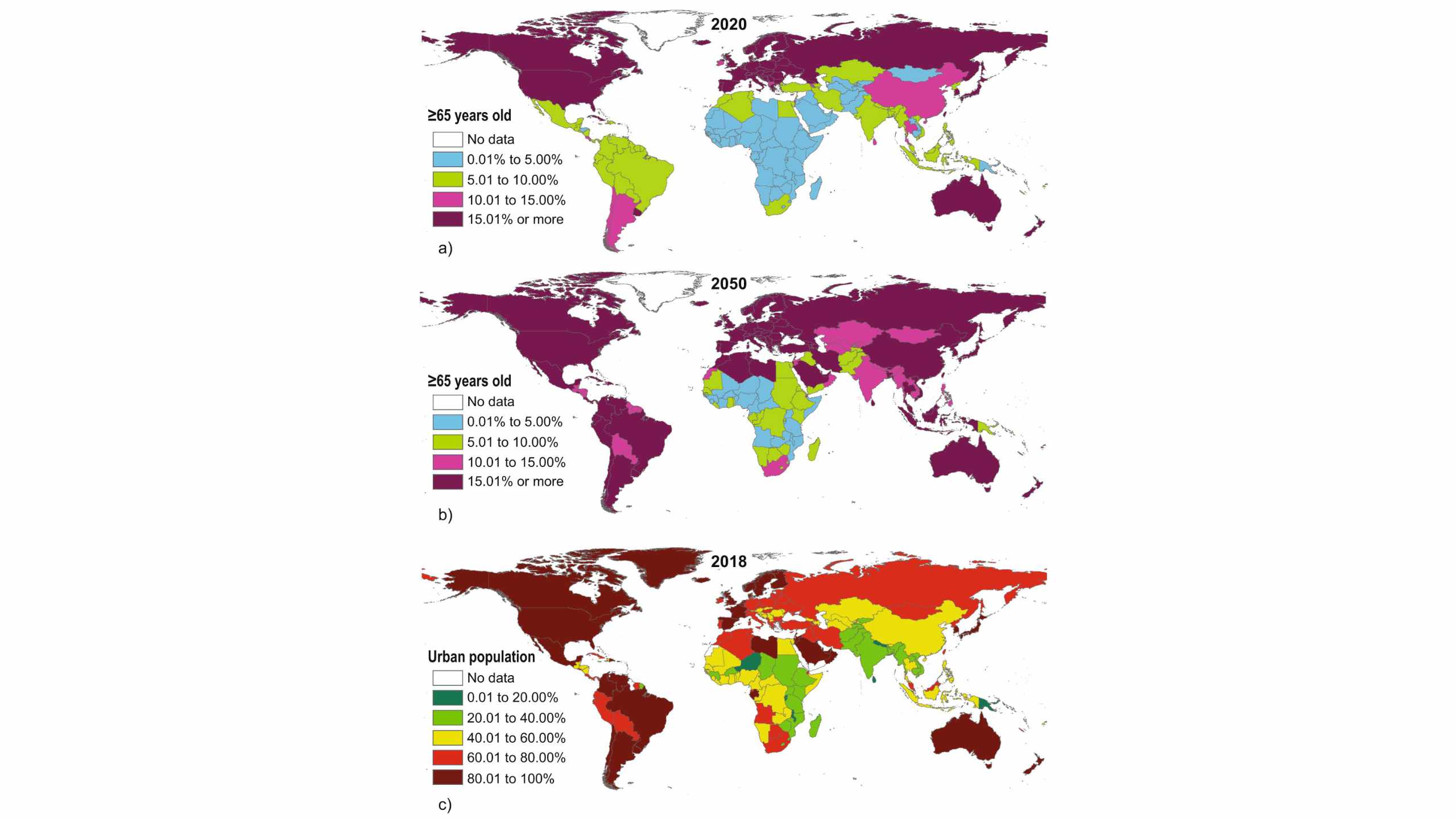SUSTAINABLE DEVELOPMENT GOALS
Ageing, shrinking cities not all bad for the SDGs
The number of people above 65 is increasing. That need not be a problem for urban sustainability
- In many regions of the world populations have grown older and fertility rates have declined to very low levels, leading to simultaneously shrinking and ageing populations
- The authors of this perspective identify challenges and opportunities this will have in urban areas for implementing the Sustainable Development Goals
- They also discuss some emerging interventions to capitalise on the opportunities and reduce the challenges to achieving sustainability
OPPORTUNITIES BEFORE AGE: The UN estimates that some 728 million people are now 65 years of age or older. That number is expected to grow to approximately 16% of the world’s population by 2050 in all continents except Africa, but especially in Europe and East Asia.
Although many regions, especially those on the African continent expect to see their cities sprawl and expand for the foreseeable future, in others they are shrinking.
Consequences of ageing and shrinking cities on economics, productivity, pension funds and health costs have been studied for a long time, but what does this process mean for sustainability?
Benefits for biodiversity
In a new perspective in npj Urban Sustainability, an international team of scientists including centre researcher Thomas Elmqvist make the case that although ageing and shrinking urban populations will pose major challenges, they will also provide key opportunities for implementing the United Nations Sustainable Development Goals (SDGs).
In order to enhance sustainability there is a real need for interventions that make the most of the opportunities and reduce the challenges posed by ageing, shrinking cities.
Thomas Elmqvist, co-author
For example, studies have found that older age groups can have higher carbon footprints due to higher personal car use, home heating and medical care and treatment.
But ageing and shrinking populations may be beneficial for biodiversity and ecosystems. Reduced environmental pressure due to a drop in land based consumption will open up possibilities for rewilding, slow down the conversion of natural areas to agriculture, and reduce the altering of rivers to provide water for farming and bulging cities.

Proportion of aged population (in 2020 and 2050) and urban population (in 2018). Click on illustration to access full study.
Accessible green spaces
From the societal perspective, the elderly are more vulnerable to heatwaves, flooding, and diseases such as influenza or the more recent COVID-19 virus, creating clear pressures on health systems.
But an ageing population would also most likely increase policy demand for designing accessible and safe public spaces.
“Green spaces can promote physical activity and improve the physical and mental health among older people, paying clear dividends for other SDGs,” say the authors.
In order to capitalize on opportunities and reduce challenges, the authors propose three promising, emerging interventions:
- Boost innovation for health care and mobility: These interventions range from technological innovations, to social and institutional innovations
- Increase the extent and improve the design of open and green spaces: Spaces would be both accessible and provide climate adaptation and mitigation to urban populations
- Promote social inclusion through social participation and urban knowledge co-production: An ageing population of skilled, increasingly healthy and active people with spare time are able to engage in various sustainability initiatives, with participation closely linked to their experience of inclusion.
“Considering the quick pace of these changes, especially as the rate of ageing and population shrinking might be underestimated in official statistics, there is a need for urgent action,” conclude the authors.
Jarzebski, M.P., Elmqvist, T., Gasparatos, A. et al. 2021. Ageing and population shrinking: implications for sustainability in the urban century. npj Urban Sustain 1, 17. https://doi.org/10.1038/s42949-021-00023-z









